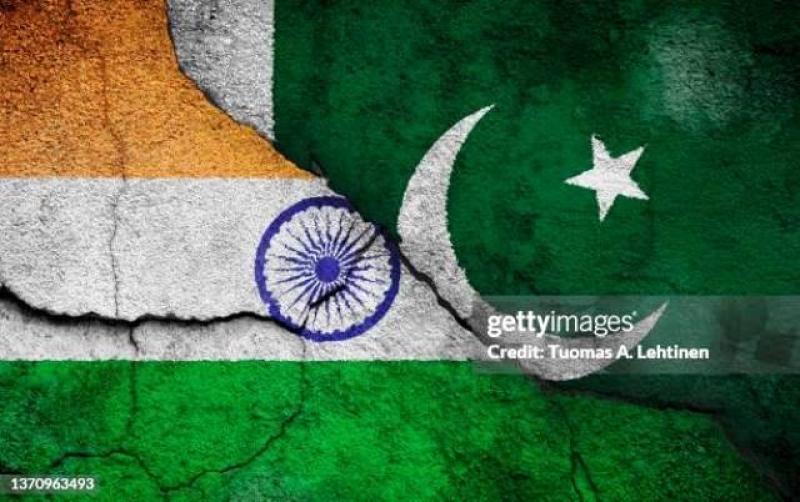News update
- CA Yunus pays homage to Liberation War martyrs on Victory Day |
- Bangladesh capital market extends losing streak for second day |
- Bangladesh celebrates Victory Day Tuesday |
- 'Different govts presented history based on their own ideologies': JU VC |
Pahalgam Tragedy: Politics must not shadow plight of victims
Readers’ corner
2025-04-27, 1:06pm

India, Pakistan flags, Getty images
The recent terrorist attack in Pahalgam, which claimed the lives of 26 innocent tourists, has not only shaken the region but also reignited tensions between India and Pakistan. The incident has drawn a spectrum of responses from neighboring countries, including Bangladesh, and has sparked intense debate within India itself.India's immediate reaction was swift and multifaceted. The government accused Pakistan-based groups of orchestrating the attack, citing cross-border linkages. Measures such as suspending the Indus Waters Treaty, closing the Attari-Wagah border, and expelling Pakistani diplomats were implemented to send a strong message. While these actions underscore India's resolve against terrorism, they also risk escalating tensions in an already volatile region.Pakistan, on the other hand, has categorically denied involvement, labeling India's accusations as baseless and politically motivated and demanded a neutral international inquiry. Islamabad's retaliatory measures, including repealing the Simla Agreement and closing its airspace to Indian flights, further deepen the diplomatic rift. Pakistan's call for a neutral investigation into the attack highlights its attempt to deflect blame while maintaining its stance against terrorism. The Pakistan-based insurgent group Laskare Talwaba also rejected the fingers pointed at it by the Indian government and said indications were that the attack was stage managed.Bangladesh, as a regional neighbor, has condemned the attack and emphasised the need for collective action against terrorism. However, its role remains largely diplomatic, focusing on fostering regional stability.Within India, the media has been divided. While some outlets have supported the government's actions as necessary and justified, others have raised concerns about the timing of the incident. Allegations that the attack was staged to bolster communal politics ahead of elections have added a layer of complexity to the narrative. Such claims, if unsubstantiated, risk undermining the gravity of the tragedy and the need for a united front against terrorism.The Pahalgam attack serves as a grim reminder of the persistent threat of terrorism in the region. While strong actions are necessary, they must be balanced with diplomatic efforts to prevent further escalation. Moreover, internal debates should focus on constructive criticism rather than divisive rhetoric, ensuring that the victims' plight is not overshadowed by political agendas.Yours sincerely, Firoze AhmedBanani, Dhaka

